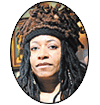This Year, a Mixed Bag of Results in the Number of Black Students Accepted for Admission at Selective Colleges and Universities
Many selective colleges and universities have announced the number of black students they have accepted for next fall’s entering class. At some colleges and universities the numbers are promising. But at the most selective campuses of the University of California, where race cannot be considered in the admissions process, the number of black students admitted remains well below historical highs.
Here are the figures:
 • At Princeton University, a record number of total applications were received for the fifth year in a row. Undoubtedly, Princeton’s strong financial aid program has resulted in this application surge. Princeton accepted 2,150 students. Of these, 9.1 percent are black. The current first-year class at Princeton which enrolled last fall is 7.7 percent black. • At Princeton University, a record number of total applications were received for the fifth year in a row. Undoubtedly, Princeton’s strong financial aid program has resulted in this application surge. Princeton accepted 2,150 students. Of these, 9.1 percent are black. The current first-year class at Princeton which enrolled last fall is 7.7 percent black.
 • Johns Hopkins University also had a record number of applicants. Slightly more than one quarter of all applicants were accepted for admission. Of the 4,319 students offered admission to the university, 310, or 7.2 percent, are black. The number of black students offered admission is down nearly 12 percent from a year ago. • Johns Hopkins University also had a record number of applicants. Slightly more than one quarter of all applicants were accepted for admission. Of the 4,319 students offered admission to the university, 310, or 7.2 percent, are black. The number of black students offered admission is down nearly 12 percent from a year ago.
 • At Swarthmore College in Pennsylvania, 17 percent of the 5,574 applicants were sent acceptance letters. Of these, a whopping 15 percent are black. This is approximately the same level as last year. Due to a low black student yield, the current freshman class at Swarthmore is 10.2 percent black. • At Swarthmore College in Pennsylvania, 17 percent of the 5,574 applicants were sent acceptance letters. Of these, a whopping 15 percent are black. This is approximately the same level as last year. Due to a low black student yield, the current freshman class at Swarthmore is 10.2 percent black.
 • At the University of California at Berkeley, 318 black students were accepted for admission this fall. This is up 5.6 percent from a year ago. Blacks are 3 percent of all admitted students. • At the University of California at Berkeley, 318 black students were accepted for admission this fall. This is up 5.6 percent from a year ago. Blacks are 3 percent of all admitted students.
 • At the University of California at Los Angeles, more than 12,000 students were offered admission. Of these, 407 are black. The number of blacks accepted for admission is down 10 percent from a year ago. Blacks are 3.4 percent of all admitted students. • At the University of California at Los Angeles, more than 12,000 students were offered admission. Of these, 407 are black. The number of blacks accepted for admission is down 10 percent from a year ago. Blacks are 3.4 percent of all admitted students.
• At Barnard College, 1,241, or 29 percent, of the 4,174 applicants were offered admission. Of those admitted, 7 percent were African Americans. Blacks were 7.4 percent of the admitted students in 2008. But a low black student yield resulted in a first-year class that was 5 percent black.
Milestone Appointment at the University of Maryland
 Phoebe Haddon was named the ninth dean of the University of Maryland School of Law. She is the first African American to lead the law school in its 185-year history. Haddon will take over as dean on July 1. The latest data from the American Bar Association shows that blacks make up 13.6 percent of the students at the University of Maryland School of Law. There are only three law schools in the country at predominantly white universities with a higher percentage of black students. Phoebe Haddon was named the ninth dean of the University of Maryland School of Law. She is the first African American to lead the law school in its 185-year history. Haddon will take over as dean on July 1. The latest data from the American Bar Association shows that blacks make up 13.6 percent of the students at the University of Maryland School of Law. There are only three law schools in the country at predominantly white universities with a higher percentage of black students.
Haddon is currently a professor at the Beasley School of Law at Temple University in Philadelphia. She has served on the Temple faculty since 1981. Previously, she was an attorney for the prestigious Washington law firm Wilmer, Cutler & Pickering.
Haddon is a graduate of Smith College. She earned her law degree at Duquesne University in Pittsburgh, where she was the editor of the Duquesne Law Review.
Du Bois Papers to Be Digitized and Made Available Online
 The papers of W.E.B. Du Bois are housed at the library of the University of Massachusetts. This massive collection of more than 100,000 documents has been available only to researchers and scholars who visit the library. The papers of W.E.B. Du Bois are housed at the library of the University of Massachusetts. This massive collection of more than 100,000 documents has been available only to researchers and scholars who visit the library.
The collection includes unpublished essays and speeches. But about 75 percent of the documents are Du Bois’ personal correspondence with historical figures such as Booker T. Washington, Marcus Garvey, and Albert Einstein.
Now, the collection will be digitized and made available online. The effort is funded through a $200,000 grant from the Verizon Foundation.
Large Rise in Black Enrollments for the Current Semester at Georgia’s Public Colleges and Universities
 The University System of Georgia reports that overall enrollments have increased nearly 6 percent this semester compared to spring semester last year. Black enrollments increased at an even greater rate, up 8.7 percent from a year ago. This spring there are 68,867 black students enrolled at Georgia’s public colleges and universities. The University System of Georgia reports that overall enrollments have increased nearly 6 percent this semester compared to spring semester last year. Black enrollments increased at an even greater rate, up 8.7 percent from a year ago. This spring there are 68,867 black students enrolled at Georgia’s public colleges and universities.
At historically black Savannah State University, total enrollments are up 12.4 percent over last spring. At Fort Valley State University, another historically black educational institution, total enrollments have increased a whopping 23.1 percent.
Black Students From Caribbean Nations at U.S. Colleges and Universities
In the 2007-08 academic year, there were 12,739 students from Caribbean nations attending college in the U.S. Undoubtedly, most of these students are black. Jamaica sent more than 3,800 college students to study in the United States. More than 2,600 students from Trinidad and Tobago and more than 1,500 students from the Bahamas attended colleges and universities in the United States. Haiti sent nearly 900 students to study in U.S. universities.
A Novel Plan to Rescue Historically Black Morris Brown College
The travails of Morris Brown College, the historically black educational institution in Atlanta, are well known. The school lost its accreditation in 2002. Enrollments have plummeted. Last winter the water was shut off on campus because the college was unable to pay the city’s water bill. Recently a building on campus was lost to a foreclosure sale because the college couldn’t pay back loans used to finance the construction of the building. The college continues to hold millions of dollars in debt.
 Larry E. Rivers, president of Fort Valley State University, a historically black, public university in Georgia, has issued a proposal to save the financially strapped privately owned Morris Brown College in Atlanta. Dr. Rivers has floated the idea that Morris Brown be incorporated into Fort Valley State University. Under the Rivers plan Morris Brown would remain an Atlanta campus of the university. Larry E. Rivers, president of Fort Valley State University, a historically black, public university in Georgia, has issued a proposal to save the financially strapped privately owned Morris Brown College in Atlanta. Dr. Rivers has floated the idea that Morris Brown be incorporated into Fort Valley State University. Under the Rivers plan Morris Brown would remain an Atlanta campus of the university.
The plan would have to be approved by the University System of Georgia as well as by the state legislature. The trustees of Morris Brown College and the African Methodist Episcopal Church would also need to agree to donate the college’s assets to the state in return for eliminating the school’s massive debt.
  |
7.9% Percentage of all students enrolled in Catholic parochial schools in 2008 who were black.
12.4% Percentage of all students enrolled in conservative Christian private schools in 2008 who were black.
23.3% Percentage of all students enrolled in private special education schools in 2008 who were black.
source: U.S. Department of Education
|
In Memoriam
Otha O. Lang (1947-2009)
Otha O. Lang, a longtime educator who spent his later years as an associate professor at Aurora University in Illinois, died in a Joliet hospital after suffering a heart attack. He was 61 years old.
Lang spent his early career as an administrator in several Illinois public school districts. His longest stint was as principal of a middle school in Bolingbrook. After his retirement as principal he taught at both Aurora University and Governors State University in University Park, Illinois.
Dr. Lang was a graduate of Jackson State University. He held a master’s degree in English from Morgan State University and a doctorate in educational administration from the University of Illinois.
Chetwynd E. Bowling (1936-2008)
Chetwynd E. Bowling, a physician and medical school educator, died in Philadelphia from complications of coronary artery disease. He was 72 years old.
A native of Guyana, Dr. Bowling was director of the Strawberry Mansion Health Clinic in Philadelphia until his retirement in 2007. He was a graduate of the University of Bridgeport and received his medical degree at Howard University. He was an assistant professor at Hahnemann University Hospital, a clinical associate professor at the Temple University School of Medicine, and a clinical instructor in family practice at the Penn State Hershey Medical Center.
Honors and Awards
• John A. Peoples Jr., former president of Jackson State University in Mississippi, was awarded the Mississippi Medal of Service by Governor Haley Barbour. Dr. Peoples served as university president from 1967 to 1984.
A graduate of Jackson State University, Dr. Peoples earned a master’s degree and a Ph.D. from the University of Chicago.
• George P. Wilson Sr., professor of criminal justice at North Carolina Central University, received the Evelyn Gilbert Unsung Hero Award from the Academy of Criminal Justice Sciences.
• Eli Jones, dean of the E.J. Ourso College of Business at Louisiana State University in Baton Rouge, was named Outstanding Doctoral Alumnus of the Mays Business School at Texas A&M University.
• Cory Booker, the mayor of Newark, New Jersey, will be presented with the Medal of Distinguished Service from Teachers College at Columbia University at the school’s convocation ceremony in May.
Grants
• Tennessee State University, the historically black educational institution in Nashville, Tennessee, received a $750,000 grant from the Volkswagen Group of America. The funds will be used for student scholarships and to establish an endowed chair in supply chain management in the university’s College of Business.
• The University System of Georgia received a $500,000 grant from the Lumina Foundation for Education for a program to improve the retention and graduation rates of black male students.
|
Princeton Researchers Find That Colleges and Universities That Drop the SAT Requirement Are More Likely to Be Racially and Socioeconomically Diverse
 Researchers at Princeton University have found that colleges and universities that have adopted a policy that does not require applicants to submit scores on the SAT or ACT college entrance examination are more likely to have student bodies that are more racially and socioeconomically diverse. Researchers at Princeton University have found that colleges and universities that have adopted a policy that does not require applicants to submit scores on the SAT or ACT college entrance examination are more likely to have student bodies that are more racially and socioeconomically diverse.
The study, conducted by Thomas J. Espenshade, a professor of sociology, and Chang Young Chung, a statistical programmer at Princeton, predicted that the percentage of black students who would be admitted to the nation’s most selective private colleges and universities would increase from about 8 percent to 11.3 percent if these schools no longer required applicants to submit standardized test scores.
At selective state-operated universities the percentage of black students admitted would increase from 7.8 percent to 9.9 percent under an SAT-optional admission procedure.
The Princeton researchers’ analysis also notes that if selective colleges abandoned the SAT requirement there would be very little change in other academic qualifications of accepted students such as grade point averages and percentage of students in the top 10 percent of their graduating class.
  |
 “HBCUs must stay true to their missions. There is still a responsibility to make certain that people who have potential — not just test scores and grades — and can benefit from an opportunity, have a chance.” “HBCUs must stay true to their missions. There is still a responsibility to make certain that people who have potential — not just test scores and grades — and can benefit from an opportunity, have a chance.”
— James Ammons, president of Florida A&M University, in the Tallahassee Democrat, 4-10-09
|
Few Blacks at Scotland’s Universities
 The United Kingdom’s Equality and Human Rights Commission has launched an investigation into the low levels of Caribbean black students at universities in Scotland. On average, Caribbean-origin blacks made up 1.4 percent of the students at Scottish universities in 2007. But the level was as low as 0.3 percent at some institutions. Caribbean blacks make up 2 percent of the population in the United Kingdom. The United Kingdom’s Equality and Human Rights Commission has launched an investigation into the low levels of Caribbean black students at universities in Scotland. On average, Caribbean-origin blacks made up 1.4 percent of the students at Scottish universities in 2007. But the level was as low as 0.3 percent at some institutions. Caribbean blacks make up 2 percent of the population in the United Kingdom.
The highest percentage of black students is at Robert Gordon University, where blacks were 5.3 percent of all enrollments. Blacks were 1 percent of the students at the University of Edinburgh. At the University of Glasgow, blacks were 0.3 percent of the student body. At the Royal Scottish Academy of Music and Drama, there were no black students whatsoever in 2007. School officials say that there are now three black students on campus.
Duke Human Rights Center Launches Research Project to Examine Racial History of Durham, North Carolina
 The Duke Human Rights Center, part of the John Hope Franklin Humanities Institute at Duke University, has announced the establishment of the Pauli Murray Project. The research project will examine the history of race relations in Durham, North Carolina, and will seek to promote better race relations between blacks and whites in the city. The Duke Human Rights Center, part of the John Hope Franklin Humanities Institute at Duke University, has announced the establishment of the Pauli Murray Project. The research project will examine the history of race relations in Durham, North Carolina, and will seek to promote better race relations between blacks and whites in the city.
The Pauli Murray Project will create resources documenting the racial history of Durham and will hold seminars and organize book clubs in order to read and discuss written works on Durham’s history. The project is funded by grants from the Andrus Family Fund and the North Carolina Humanities Council.
 Pauli Murray was a civil rights activist who grew up in Durham. In 1938 she graduated from Hunter College in New York City. At the time, racist restrictions prevailed and she tried unsuccessfully to enter graduate school at the University of North Carolina at Chapel Hill. She later earned law degrees at Howard University and the Boalt Hall School of the University of California at Berkeley. Murray was the first African American to earn a juris doctorate from Yale Law School. She later earned a master’s degree in divinity from the General Theological Seminary. Pauli Murray was a civil rights activist who grew up in Durham. In 1938 she graduated from Hunter College in New York City. At the time, racist restrictions prevailed and she tried unsuccessfully to enter graduate school at the University of North Carolina at Chapel Hill. She later earned law degrees at Howard University and the Boalt Hall School of the University of California at Berkeley. Murray was the first African American to earn a juris doctorate from Yale Law School. She later earned a master’s degree in divinity from the General Theological Seminary.
Banner Year for Blacks in Awards of Truman Scholarships
Each year as many as 80 Truman scholarships are awarded to U.S. citizens who are juniors in college. Supported by a special trust fund in the U.S. Treasury, the awards provide $30,000 in scholarship funds for students who are planning graduate study in law, public administration, education, environmental studies, international relations, or public health. Truman Scholars are also given the inside track for admission to selective graduate institutions and also for government internship positions.
This year 289 colleges and universities nominated 601 candidates for Truman scholarships. Sixty Truman Scholars were selected. In a typical year there are between three and five African Americans who win Truman scholarships. This year there are 11. The 11 black Truman Scholars for 2009 are shown below along with their undergraduate institution.
Dartmouth Associate Provost Named to Presidency of Naropa University
 Stuart Calvin Lord was named president of Naropa University in Boulder, Colorado. He was the associate provost at Dartmouth College in New Hampshire. He is the first African American to lead Naropa University. Stuart Calvin Lord was named president of Naropa University in Boulder, Colorado. He was the associate provost at Dartmouth College in New Hampshire. He is the first African American to lead Naropa University.
Naropa University is a private, nonprofit, nonsectarian liberal arts institution dedicated to advancing contemplative education in the Buddhist tradition. The university has about 500 undergraduate students of whom only 1 percent are black. There are more than 600 graduate students at the university.
Dr. Lord is a 1982 graduate of Texas Christian University. He earned two master’s degrees from the Princeton Theological Seminary and a doctor of ministry degree from the Union Theological Seminary. Prior to his coming to Dartmouth in 2000 Dr. Lord was associate dean and professor of ethics and leadership at DePauw University in Greencastle, Indiana.
Appointments, Promotions & Retirements
 • Wornie Reed was named professor of sociology and director of the Center for Race and Social Policy at Virginia Tech. Reed, who will begin at Virginia Tech this fall, is currently director of the Africana studies program at the University of Tennessee. • Wornie Reed was named professor of sociology and director of the Center for Race and Social Policy at Virginia Tech. Reed, who will begin at Virginia Tech this fall, is currently director of the Africana studies program at the University of Tennessee.
Dr. Reed is a graduate of Alabama State University. He holds a master’s degree and a Ph.D. in sociology from Boston University.
 • This semester Renee Stout is serving as artist in residence at the Center for African Studies at Johns Hopkins University. Stout is a visual artist who creates sculptures from found objects such as fabric, lace, buttons, and bottle caps. She is a graduate of Carnegie Mellon University. • This semester Renee Stout is serving as artist in residence at the Center for African Studies at Johns Hopkins University. Stout is a visual artist who creates sculptures from found objects such as fabric, lace, buttons, and bottle caps. She is a graduate of Carnegie Mellon University.
• Adrianne C. Smith was appointed executive director of the Center for Excellence in Advertising at Howard University in Washington, D.C. She was a partner of the AdHere Network, an affinity marketing firm.
 • Charles Robinson, associate professor of history and director of the African-American studies program at the University of Arkansas, was named chief diversity officer at the university. • Charles Robinson, associate professor of history and director of the African-American studies program at the University of Arkansas, was named chief diversity officer at the university.
Robinson holds a master’s degree from Rice University. He earned a bachelor’s degree and a Ph.D. in history from the University of Houston.
 • Franklin McCain, chair of the board of trustees of North Carolina A&T State University, was elected to the board of governors of the University of North Carolina. • Franklin McCain, chair of the board of trustees of North Carolina A&T State University, was elected to the board of governors of the University of North Carolina.
McCain was one of four students at North Carolina A&T State University who initiated a sit-in at a lunch counter in a Woolworth’s store in Greensboro. These protests quickly spread throughout the South and acted as a catalyst for the civil rights movement.
• Ronald G. Penny, chair of the department of public administration at North Carolina Central University, was appointed by Governor Beverly Perdue to the North Carolina Budget Reform and Accountability Commission.
• Marie Y. Williams, vice president and chief administrative officer at Fisk University in Nashville, Tennessee, was named an American Council on Education Fellow for the 2009-10 academic year. Williams has been an administrator at Fisk since 2001.
 • Otha Everett was appointed assistant professor of rehabilitation counseling and case management at Fort Valley State University in Georgia. He is pastor of the Greater Union Baptist Church in Perry, Georgia. • Otha Everett was appointed assistant professor of rehabilitation counseling and case management at Fort Valley State University in Georgia. He is pastor of the Greater Union Baptist Church in Perry, Georgia.
Everett is a graduate of Valdosta State University. He holds a master’s degree from Fort Valley State University and is currently pursuing a doctorate at Argosy University.
|